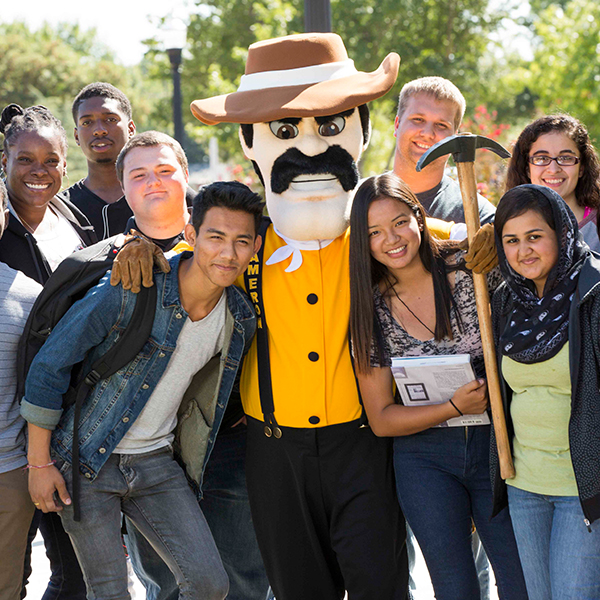Current Students



immigration
F-1 Visa
If your visa expires while you are in the U.S., the next time you travel abroad you must obtain a new visa in the proper category in order to be readmitted to the United States. Apply for the visa in your home country, unless circumstances or travel plans make this impossible. If you apply for a visa at a U.S. Embassy in another country, your application may be reviewed more critically than if you applied at home. In-person interviews are required for most visa applicants. You are encouraged to contact the U.S. consulate as early as possible to schedule the visa interview appointment. Anticipate delays in visa issuance due to enhanced security reviews.
An exception to the rule requiring a valid, unexpired visa exists for students in F-1 status who travel for less than 30 days solely to Canada or Mexico or islands in the Caribbean except Cuba. Your visa will be considered to be “extended” (and “converted” to the proper visa category if you had changed status while in the U.S.) to the date of re-entry, eliminating the need to obtain a new visa at a U.S. consulate before that particular re-entry. This procedure is known as “automatic visa revalidation.”
Students shall submit copies of visa renewals to the ISS Office upon return.
F-1 I-20 Certificate of Eligibility
Students may obtain copies of their I-20's from ISS Office after loss, destruction, or update of information.
I-94 Arrival and Departure Form
It is important to have a copy of your Form I-94 to prove your legal visa status in the United States. If you are admitted electronically and do not receive a paper form, or if you misplace your form and need a replacement, follow the steps below to retrieve a copy.
Go to the U.S. Customs and Border Protection’s Form I-94 Web pagee and agree to the terms listed.
Once directed to the Form I-94 information page, enter your name, date of birth and passport information.
Select “Get Most Recent I-94” or “Get Travel History.”
Passport
Your passport must be valid for at least six months when seeking admission or readmission to the United States, unless your country has an agreement with the United States. For a list of countries under this agreement, see the list on the Immigration Customs Enforcement websitete. Your passport should remain valid throughout your stay in the U.S.
It is your responsibility to understand and comply with the terms of your immigration status during your stay in the United States. A violation of the immigration regulations (for example, failure to maintain a full-time credit load or unauthorized employment) could jeopardize your F-1 status and legal stay in the U.S.
Contact Your International Student Services Office Upon Arrival At Cameron
Maintain Full Time Enrollment
Speak with DSO Before Taking Vacation
Do Not Work Without Authorization
Keep Address Updated in SEVIS
Keep I-20 Up-To-Date
Keep Your Passport Current With At Least Six Months Remaining On It
Carry the Correct Documents With You At All Times
Comply with United States Tax Law
Leave the United States Before Your Grace Period Ends
As a student studying in the United States, you may be able to travel during your time of study. If you travel internationally, for annual vacation or during a school break, make sure you take the appropriate steps before you travel to ensure a smooth reentry into the United States.
Before you travel abroad, it is important to check in with your DSO. When you meet with your DSO, you should ensure that your record in the Student and Exchange Visitor Information System (SEVIS) is up-to-date and in Active status.
Make sure that your DSO has signed your Form I-20, “Certificate of Eligibility for Nonimmigrant Student Status” within the last year, and that you are not leaving the country for more than 5 months. You should also make sure that you have your DSO’s most up-to-date contact information, including both a daytime telephone number at the school and a 24-hour emergency phone number, before you leave.
When you enter the United States, you will arrive at a port of entry and meet with U.S. Customs and Border Protection (CBP) officers for primary and sometimes a secondary inspection.
Documents Necessary for Travel
Student visa
Form I-20
Passport
Your passport must be valid for at least six months after the date of your reentry. It is recommended that you bring your most recent Form I-94, “Arrival/Departure Record,” with you as well.
If you arrive at a U.S. port of entry and do not have all your signed required documents, have not paid the I-901 SEVIS Fee on your current Form I-20 or have a SEVIS status issue, a CBP officer may issue you a Form I-515A, “Notice to Student or Exchange Visitor.” The Form I-515A admits you to the United States for 30 days while you obtain and submit the proper documentation to SEVP. Upon arrival at your institution inform your DSO of your I-515A form.
Traveling On OPT or OPT Pending
If USCIS has approved your OPT you will be expected to have your Employment Authorization Document in hand to re-enter the United States, in addition to your Form I-20, valid passport and visa, and a letter of employment if you have one.
F-1 students may leave and reenter the United States while an approval for OPT is pending. An F-1 student with an expired visa should wait for OPT approval.
Additional Information
Specific questions as to travel may be answered at USICE
If you want to change the purpose of your visit while in the United States, you (or in some cases your employer) must file a request with the U.S. Citizenship and Immigration Services (USCIS) on the appropriate form before your authorized stay expires. Those obtaining permanent residency, please complete "PERM RESIDENT" form.
In general, you may apply to change your nonimmigrant status if you were lawfully admitted to the United States in an eligible nonimmigrant status, your nonimmigrant status remains valid, you have not violated the conditions of your status and you have not committed any crimes that would make you ineligible. Until you receive approval from USCIS, do not assume the status has been approved and do not change your activity in the United States.
USCIS recommends that you apply as soon as you determine that you need to change to a different nonimmigrant category. If USCIS denies your application, be prepared to leave the United States when your current status expires.
If you are an F-1 student interested in changing to H-1B status, your prospective employer must sponsor you and file that petition.
As an F-1 student, you must regularly report any changes to your designated school official (DSO) to ensure that your information is correct in the Student and Exchange Visitor Information System (SEVIS). Federal regulations require that you report a change of address to a DSO to maintain your student status.
One important piece of information that must be kept up to date in SEVIS is your address. If you move to a new residence and your address changes, you must report this to your DSO within 10 days of the change. You may communicate this revision to your DSO in person, by phone, email, or through your Aggie Access account. Once you do, your DSO will input the new information in your SEVIS record. You are also required to update your personal information with Cameron University.
While in the United States, F-1 students must be continuously enrolled full time during the academic year until the completion of their programs of study. A Leave of Absence (LOA) allows F1 student to take time off from their academic program.
During a LOA your SEVIS record is terminated until you are ready to return. When you are ready to return your record is “reactivated” and you will be back in status.
F-1student needs to talk to their designated school official (DSO) to request a leave of absence before you leave school. If the DSO allows you to withdraw from school or take a leave of absence, you will be allowed a 15-day period for departure from the United States and your Student and Exchange Visitor Information System (SEVIS) record will reflect Terminated status for authorized early withdrawal.
When preparing to return to the United States, you can choose a date that meets two specific criteria:
Within five months from the date the DSO put your record in Terminated status
At a time when you can begin studying again, such as the beginning of a new semester
You must talk to a DSO before returning to the United States (perhaps more than a month before the date you hope to return) to get your SEVIS record set back to Active status. If you are away from classes and not in Active status in SEVIS for more than five months, your SEVIS record is terminated. If this happens, you will need to obtain a new Form I-20, "Certificate of Eligibility for Nonimmigrant Student Status" with a new SEVIS ID number from your DSO in order to continue your studies. After you receive your new Form I-20 you will have to pay the I-901 SEVIS fee (with the new SEVIS ID on your new Form I-20) and obtain a new visa.
If you have been admitted to another university in the United States, you may be eligible to transfer your F-1 SEVIS record to the new school.
If your SEVIS record is transferred to a new school:
- the I-20 from the new school will have the same SEVIS number as your CU I-20
- you are not required to pay the SEVIS I-901 Fee for your new I-20
- you can remain in the United States between the end of classes at the CU and the beginning of classes at the new school
When to Apply
Your eligibility to transfer your SEVIS record to a new school depends, in part, on when you would like to transfer. In all cases, you must continue to maintain your F-1 immigration status at CU until the date your SEVIS record is transferred to the new school.
Between Semesters
- Submit your request to ISS before the start of the semester or term you will begin your new program
- Classes at the new school must begin within 5 months of the last day you attended classes at CU
- Your record will not be released until the last day of final exams for the semester
- If your record has not been transferred and the fall/spring semester at CU has already started, then you will be expected to enroll full-time at the CU
- If you have on-campus employment, your work authorization will end the date that your SEVIS record is transferred to the new school
After the First Day of the Fall or Spring Semester
- Classes at the new school must begin within 5 months of the last day you attended classes at CU
- You must remain enrolled full-time at CU and continue to attend classes until the date your SEVIS record is transferred to the new school
- Review the Bursar’s Office Dates and Deadlines to find out the last day you can withdraw from CU and still receive a full refund
After Graduation
- Classes at the new school must begin within 5 months of the last day you attended classes at CU
- Your SEVIS record must be transferred to the new school before the end of the 60-day grace period following your degree completion or program end date on the I-20, whichever is earlier
- Review Academic Changes: Program End Date for more information about determining your program end date
During OPT
- Your record can be transferred before your OPT has ended or during the 60-day grace period after your OPT has ended
- Classes at your new school must begin within 5 months of the day your record is transferred or the end date of your OPT (whichever is earlier)
- If you transfer your record before your EAD card expires, then you will lose any remaining days of OPT work authorization
- Select a transfer release date so you do not accrue too many days of unemployment (limit is 90 days for students on post-completion OPT and 150 days for students on STEM OPT extension)
How to Apply
Email a copy of your new school's admissions letter and transfer in form to international@cameron.edu with requested date of transfer.
Students with Terminated Records
It is extremely uncommon for schools to accept transferred records in terminated status. If your SEVIS record has been terminated, or you have been notified that your record will be terminated, then you are not eligible for a SEVIS transfer, unless your new school provides written confirmation to ISS that they want us to transfer your record in terminated status. You should contact the international student advisor at your new school to find out the steps to reestablish your F-1 status.
Travel
After your record is transferred to the new school, your Cameron I-20 will no longer be valid. If you will travel outside the U.S. after your record has been transferred, you must re-enter the U.S. with the I-20 from the new school.
Additional Resources
Study in the States: Instructions for Transferring to Another School as an F-1 Student
U.S. Immigration and Customs Enforcement: Transfer for F-1 Students
Academics
Undergraduate students must be registered for a minimum of 12 credit hours each Fall and Spring semester.
Graduate students must be registered for a minimum of 9 credit hours each Fall and Spring semester.
U.S. immigration regulations limit international students to only ONE online/distance course per semester (the equivalent to 3 credit hours) that counts towards their minimum full-time enrollment requirement.
You can take more than one online course, but only 3 credit hours of online/distance coursework will count toward your full-time enrollment requirements.
If you are enrolled in your FINAL semester, you cannot be enrolled in online courses only. You must also be enrolled in at least one in-person course on campus.
Unless you have been approved for a reduced course load by the ISSS office, you will receive emails informing you that you are under-enrolled. You will need to take immediate action by responding to the emails and registering for more credits in order to pursue a full course of study. If you have trouble adding classes or would like to discuss your situation, please contact the ISS Office.
I Grades
A grade of "I" (incomplete) must be resolved with your professor. Please consult your academic department for more information.
Auditing a Course
Auditing a course does NOT count toward the full-time requirement.
Withdrawing from a Course
Withdrawal from a course at ANY point in the semester does NOT count toward the full-time requirement.
You must complete (earn a grade of A, B, C, D, or F) the required number of credit hours every Fall and Spring semester to maintain your immigration status.
Undergraduate students: Only one online class per semester counts toward the full-time credits required to maintain your F-1 status. At least 9 credits per semester must be classes that meet on-campus (meaning, at least 9 of your 12 credits must be “on-campus” classes).
Graduate students: Online Classes: Only one online class per semester counts toward the full-time credits required to maintain your F-1 status. At least 6 credits per semester must be classes that meet on-campus (meaning, at least 6 of your 9 credits must be “on-campus” classes).
Shorten the Program
You will be asked by ISS to provide the name and email address for your academic advisor. The advisor you indicate will receive an email to confirm your degree completion date. If you have more than one major, you must also submit the second advisor's email as well.
Please indicate whether you want a new I-20 reprinted after your program end date is shortened in SEVIS.
For immigration purposes, your program end date is the date that you complete your degree requirements, not the date of your graduation ceremony or degree conferral. Undergraduate and Graduate students with coursework in the final term, the end date is the session end date on the academic calendar.
Extending Your Program
Request a program extension if you will not complete your degree by the end date indicated on your I-20.
You should submit your request to International Student Services (ISS) during your final semester before your I-20 expires, and at least 4 weeks prior to your I-20 end date. Extensions can be granted for up to 1 year at a time. If you must apply for more than one extension, ISS will take into consideration the reasons for past extension requests when reviewing your eligibility for additional extensions.
How to Apply
Request Program Extension from the ISS Office. You will be asked to provide the name and email address for your academic advisor. The advisor you indicate will receive an email, so he or she can provide information about your degree completion date and the reason for the extension. If you have more than one major, you must also submit the Secondary Advisor information. ISS will inform the student if they have been approved for extension.
You are allowed to be under-enrolled ONLY if you have received approval from the ISS office. Some situations where a reduced course load may be permitted include:
- Medical Issues: Please meet with ISS to discuss your options and the process to apply for a Medical Reduced Course Load.
- Academic Difficulties: Please meet with ISS to discuss your options and the process to apply for Academic Reduced Course Load. This option can only be used once per degree level.
- Last Semester: If you have submitted a “Last Semester Verification” form to ISS office and require fewer than full-time credits to graduate, you can be approved for a reduced course load during your final semester. For more information, please see the Last Semester Verification policy guides for undergraduates and graduate students in thesis programs.
- Summer Vacation: Summer term is the only term that students are allowed to be enrolled in no credits or less than full-time credits without any specific approval from ISS. However, if summer is your first semester, you must be enrolled in full-time credits.
Change of Education Level
F-1 students: If you have been admitted to a new degree program at Cameron University, you must request a new I-20 in order to pursue the new degree.
When to Apply
If you are completing your current degree or on a period of post-completion OPT, you must request the change of level before the end of your 60-day grace period. The new degree program must begin within 5 months of the end date of your current program or period of post-completion OPT.
If you do not apply for a change of level before the end of your grace period, or if your new program is more than 5 months in the future, Cameron ISS cannot process your change of level request. You must depart the U.S. and work with the ISS to receive an initial I-20. You will be required to pay the SEVIS I-901 fee for your new SEVIS number, and you may be required to apply for a new visa to reenter the U.S.
How to Apply
After you have been admitted to a program, your admission letter will be sent directly to International Student Services (ISS) from Admissions or the Graduate College.
Submit the Change of Level form to ISS office so we can update your information in SEVIS.
Travel
If you are approved for a change of level, your SEVIS number will remain the same, and you will not be required to depart the U.S. before beginning your new degree program, even if the visa in your passport has expired. However, if you choose to travel outside the U.S. before the beginning of the new program and your visa is expired, you must renew your visa in order to reenter the U.S.
Employment
If you are a currently enrolled student going directly from one degree program to another (for example, finishing your bachelor’s in the spring and beginning your master’s in the fall) you will continue to have on-campus employment authorization after your Change of Education Level I-20 has been issued. However, there may be other university policies regarding enrollment requirements for student workers. Please check with your university employer.
Change of Major
F-1 students must request a new I-20 within 10 days of changing your major. Undergraduate students will need to first meet with their academic advisor. Graduate students will need to first meet admissions and work with your academic department to submit an application for a change of major. After your major is updated with CU request updated I-20 from ISS office.
Practical Matters
Many international students receive financial assistance from their home countries and governments. Foreign governments require proof their national is enrolled with Cameron University for the semester or academic year the student is requesting financial aid. The International Student Service Office completes a form on behalf of the student as proof of attendance. Often foreign governments will have their own standard form of attendance letter for us to fill out. Students requesting such assistance will need to contact our office along with any governmental forms that need to be filled as soon as they are enrolled in courses.
We will only accept arrangements made through eShip Global. This must be paid and arranged by the student.
Obtain an Oklahoma Driving License
State law requires all applicants for a driver license or identification card to present specific documented proof of legal presence in the United States.
Procedures for US citizens will affect first-time applicants, new residents, and anyone currently holding an Oklahoma driver license who is applying for an upgrade of license class, such as upgrading to a commercial driver license. This will not affect Oklahoma residents who are renewing, unless they allow their license to expire. If the license is expired, the applicant must appear before a Driver Examiner to establish proof of legal presence in the United States.
The license or ID card of a noncitizen will be clearly labeled with the word "Temporary" and will be issued for the period of time of the person is authorized to be in the United States or for four years, whichever is shorter.
If a noncitizen applicant does not provide one of the documents required, a license or an ID card will not be issued, renewed, or replaced.
For both citizens and non-citizens, the name on the driver license or identification card must be same as the name on the document presented, unless the applicant also presents a court order of name change.
See our Employment and Taxes section.
Your family may bring a letter from you explaining who you are and what you are doing in the U.S. and that you want to invite them to visit for your graduation (and/or vacation, tour, etc.). Your letter should list the dates and locations that your family/friends will visit in the U.S. You should be as specific as possible. Include your name, date of birth, SEVIS ID# (if applicable) and address in the U.S. Please see Invitation Letter to Graduation.
Students may request copies of transcripts from the Transcript Office.
International students can stay up-to-date with their Blackboard accounts. ISS post announcements on Blackboard that affect international students. See Blackboard.

